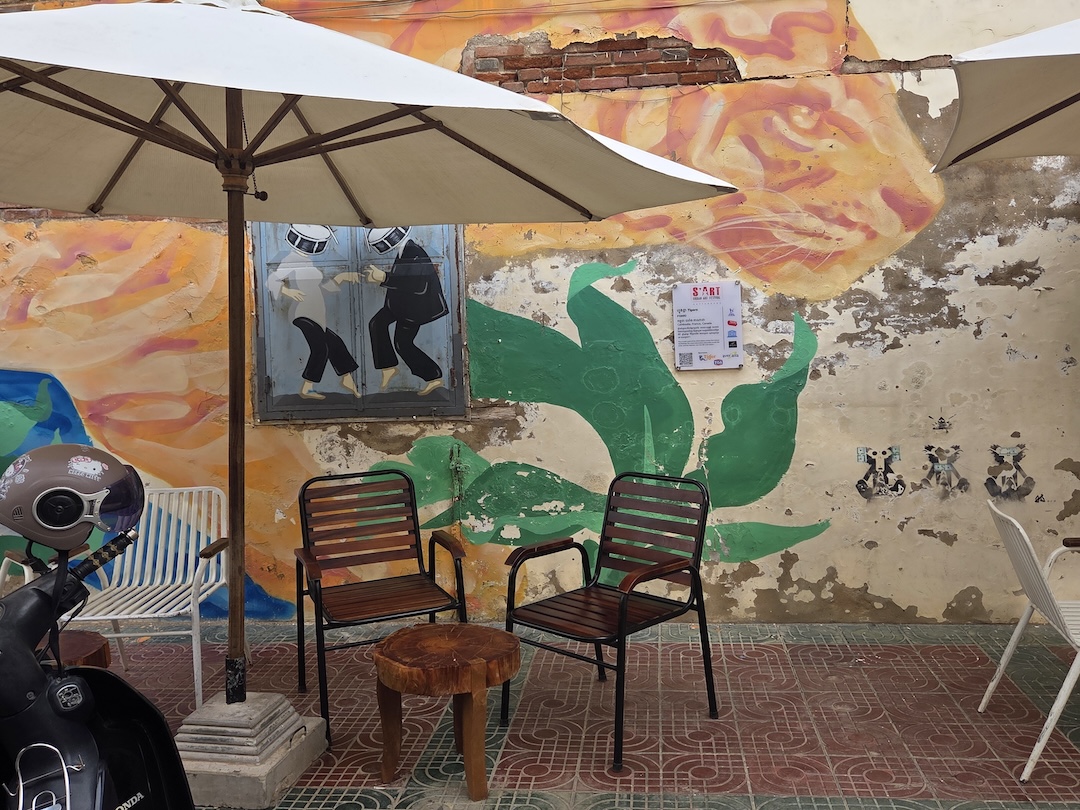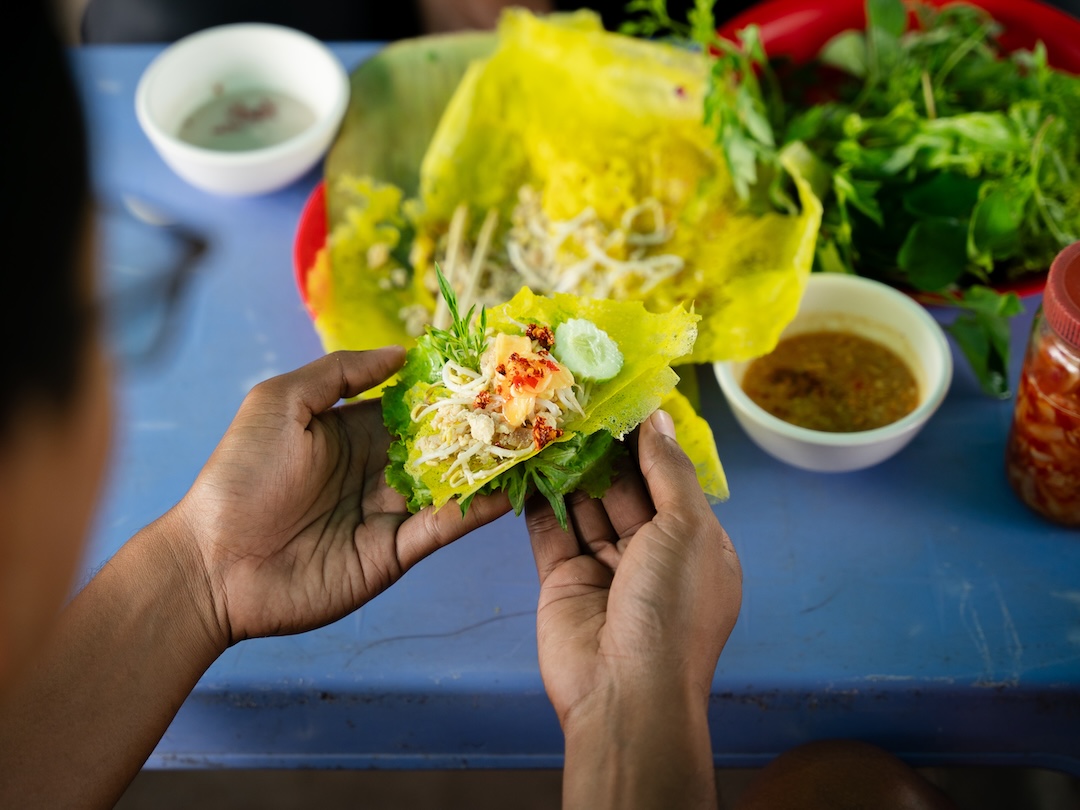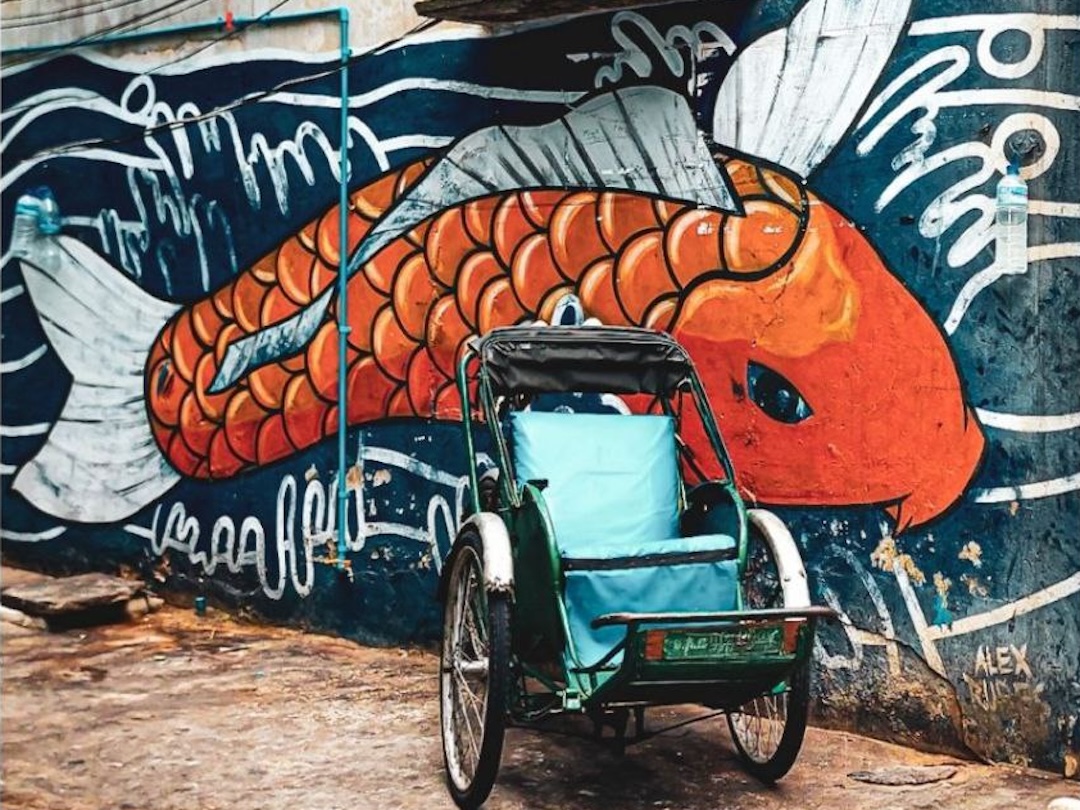Battambang Food Tours
Battambang is often overlooked, but those who make the trip are rewarded with a slower and more intimate look at Cambodian life. Known for its colonial architecture, creative energy and fertile farmland, the city has a deep connection to food and tradition. On our tours, you will explore local markets, visit family run kitchens and taste dishes that reflect the rhythms of daily life.
Travelling through quiet streets and rural villages, you will discover how food, culture and community come together in this relaxed and welcoming place. Battambang offers a different pace, where small details leave a big impression and every meal tells a story.
Battambang Street Art & Food Tour by Tuk Tuk – Sunset, Supper & Spray Cans
Experience the flavors, colors, and creativity of Battambang on this unique Tuk Tuk adventure! We’ll pick you up…
Iconic Morning Food Tour of Battambang
Start your morning with French-influenced pastries and strong Cambodian iced coffee at a local institution that’s been brewing…

Battambang Street Food Tours
Battambang is Cambodia’s quiet gem, a city where time feels slower and everyday life takes centre stage. With its mix of French colonial buildings, leafy streets and a strong connection to the land, Battambang is a place where culture and tradition are deeply rooted. Our food tours give you a chance to experience it all through the flavours that shape local life, from home cooked meals and countryside snacks to market favourites passed down through generations.
You will visit neighbourhoods and villages where food is grown, prepared and shared with care. Along the way, you will meet farmers, cooks and vendors who bring warmth and insight to every dish. This is not a city of grand landmarks but one of subtle beauty, where people, food and tradition are closely tied. A Battambang food tour offers more than just a good meal. It is a window into the everyday soul of Cambodia.
Battambang FAQs
Find answers to common questions about Battambang, its food culture and what to expect on our local tours.
When is a good time to visit Battambang?
The best time to visit Battambang is between November and March, when the weather is dry, warm and comfortable. These months are ideal for exploring the countryside, visiting markets and enjoying street food without the interruption of heavy rain. Days are mostly sunny and evenings are cooler, making travel by tuk tuk relaxed and enjoyable.
From April to October, the rainy season brings occasional afternoon showers. While the weather is more humid, this time of year also offers lush green scenery, quieter streets and fewer tourists. Many visitors enjoy the slower pace and softer light. If you do not mind a little rain, Battambang is welcoming all year round.
Is Battambang worth visiting?
Yes, Battambang is absolutely worth visiting, especially for travellers looking to experience a more peaceful and authentic side of Cambodia. The city is known for its gentle pace, friendly locals and deep cultural roots. It is a place where everyday life feels open and accessible, and where small moments often leave the biggest impression.
Unlike the larger cities, Battambang invites you to slow down and connect with the community. From scenic rice fields to traditional cooking and local art, there is much to see and taste. A visit here adds depth to any Cambodia trip and offers a chance to experience life beyond the usual tourist paths.
What food is Battambang famous for?
Battambang is known for its fresh, local ingredients and home style cooking. The region’s rich farmland produces some of the best rice, fruits and vegetables in the country, which form the base of many meals. Traditional dishes here often feature grilled meats, soups, sticky rice and tropical fruit desserts.
One of the highlights is sampling food made by families who have cooked the same recipes for generations. You may also find special treats like rice wine, preserved snacks and regional sauces not commonly seen in other parts of Cambodia. Battambang’s food reflects its agricultural roots and its quiet confidence in tradition.






